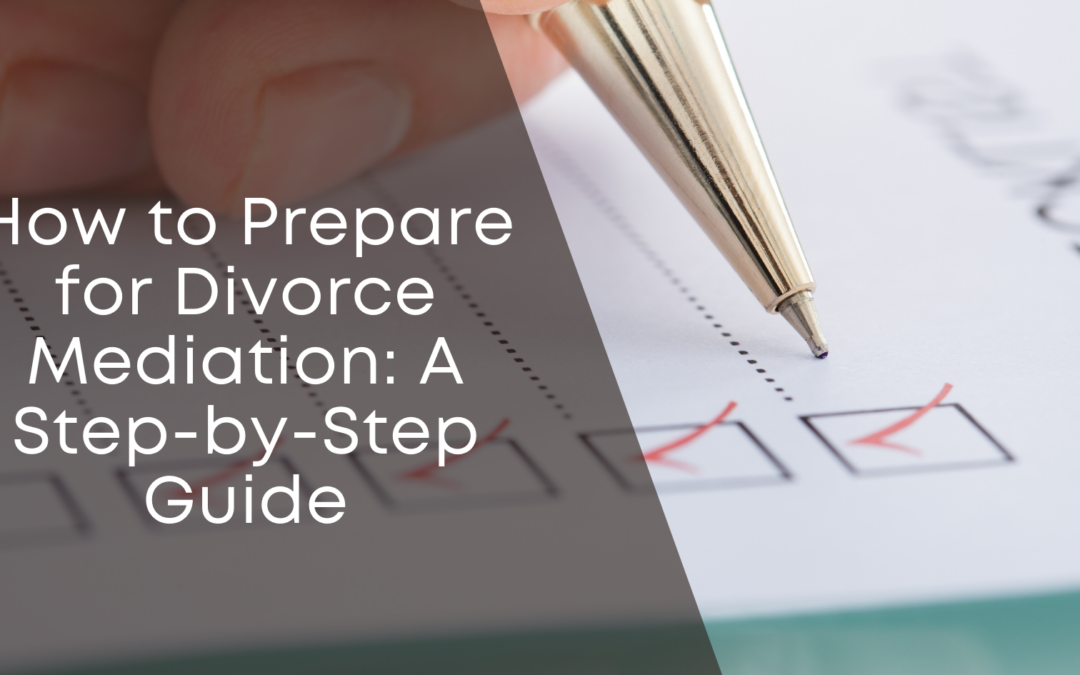Divorce can feel like the end of the world as you know it. The stress, the emotional upheaval, the uncertainty—it’s overwhelming. But what if I told you there’s a way to navigate this challenging time without the heartache of a courtroom battle? What if there’s a way to come out of this process with a sense of closure and a plan for the future? That’s where divorce mediation comes in—a process that can save you time, money, and a great deal of emotional pain.
The Problem: Navigating Divorce Without a Plan
Divorce is challenging enough without the added burden of navigating complex decisions about assets, custody, and finances. As you face the legal process of dividing property and determining family arrangements, the fear of an uncertain future and the anxiety of potential conflict can weigh heavily on you. The emotional toll of ending a significant relationship is immense, and it seems deeply unfair that something so personal and painful should be reduced to a cold, impersonal courtroom battle.
It doesn’t have to be this way. There’s a different path—one that leads to less stress, more control, and a fair outcome for everyone involved.
5 Steps to Prepare for Divorce Mediation
As a divorce mediator with over 30 years of experience, I’ve seen firsthand how mediation can transform the divorce process. I’m Steven Unruh, and I’m here to guide you through this challenging time with compassion and expertise. Mediation offers a different approach—one that’s focused on cooperation, understanding, and finding solutions that work for both parties.
Step 1: Find the Right Mediator
The first step in preparing for divorce mediation is finding the right mediator to work with. A good mediator is not just a neutral third party—they’re someone who can facilitate discussions, help you and your spouse communicate effectively, and guide you toward mutually beneficial solutions. Look for someone with experience, empathy, and a deep understanding of the issues at stake.
Step 2: Prepare Mentally and Emotionally
Entering mediation with a clear mind and a healthy mindset is crucial. Before you begin, ask yourself: What are the most important issues for me? What might be important to my spouse? What do I want for my children? Understanding your priorities and being ready to compromise can make all the difference. Remember, mediation is not about winning—it’s about finding a solution that works for everyone.
Step 3: Gather Your Documents
Mediation involves discussing financial assets, property, and other important matters. To ensure a smooth process, gather all relevant documents beforehand. This includes income statements, bank records, property deeds, and any other financial information. Having this information ready will help you make informed decisions during mediation.
Step 4: Focus on the Future
It’s easy to get caught up in past grievances during a divorce, but mediation is about looking forward. Focus on the future—what do you want your life to look like after the divorce? How can you reach an agreement that allows both you and your spouse to move forward with dignity and respect? By keeping your eyes on the future, you can help ensure that the mediation process is productive and positive.
Step 5: Prioritize Your Children’s Well-Being
If you have children, their well-being should be your top priority. Mediation offers a less stressful alternative to court battles, allowing you and your spouse to work together to create a parenting plan that’s in your children’s best interests. Remember, the way you handle your divorce will have a lasting impact on your kids—mediation gives you the opportunity to minimize that impact.
Is Mediation Right for You?
You might be wondering if mediation is the right choice. What if you and your spouse are too angry or hurt to communicate effectively? What if you feel that your spouse is being unreasonable? These are valid concerns, but mediation is designed to address them. A skilled mediator can help you and your spouse overcome communication barriers and find common ground. Mediation is not about forcing you to agree—it’s about helping you find a solution that works for both of you.
Start Your Mediation Journey Today
Divorce is never easy, but with mediation, it doesn’t have to be a battle. By opting for mediation, you’re choosing a process that prioritizes your well-being, your family’s future, and your peace of mind. If you’re ready to begin, I’m here to help. Contact me, Steven Unruh, today to schedule a free phone consultation. Together, we can discuss your situation and explore how mediation can work for you. Let’s move forward with confidence and create a brighter future.
By following these steps and choosing mediation, you’re taking control of your divorce process. You’re choosing a path that leads to resolution, not conflict—a path that allows you to move on with your life in a positive and constructive way. Don’t wait—take the first step today and unlock the potential for a smoother, less stressful divorce.


Recent Comments